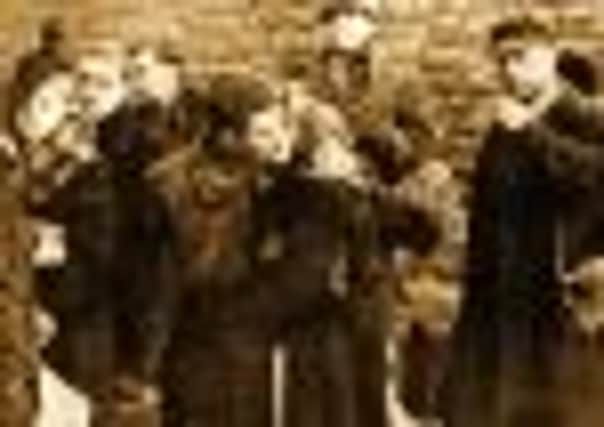Book review: Dark Summer In Bordeaux


Dark Summer In Bordeaux
Allan Massie
Quartet Books, £12
THE second volume of Allan Massie’s trilogy of policiers is an unsettling and sophisticated pleasure. Like its predecessor, Death In Bordeaux, it features Superintendent Lannes, a good man whose circumstances allow him only to choose between the bad and the worse.
Although it might be feasible to read Dark Summer In Bordeaux as a standalone novel – the first few pages are a little master-class in how to convey the maximum amount of information in the least obtrusive way, to bring new readers up to speed and jog the memory of old readers – it is a far more rewarding book if read as part of the ongoing series.
Advertisement
Hide AdAdvertisement
Hide AdUnlike a great many of the novels that might broadly be called “historical crime fiction”, the historical setting is not mere stage decoration. Massie’s subtle investigation of morality, compromise and bravery is utterly dependent on the time and place: Vichy France, where the majority are “tired of this war which isn’t being fought and tired of the conditions of this peace which isn’t peace”.
It opens with the return of Dominique, Lannes’ son, who has been freed from a prisoner of war camp through a concession and agreement Lannes made in the previous book.
The body of an elderly man has been found in a public park, with blunt trauma injuries. Lannes, who is acutely aware of the precarious nature of being a servant of two masters, the French State and the German Occupying Forces, is encouraged to write it off as a bungled robbery.
But certain facts and evasions of facts mean he cannot disregard it, especially since the murdered man turns out to have links with the powerful and anti-Semitic lawyer, Labiche, whom Lannes has already crossed.
To complicate matters, various agents of the various manifestations of the French secret services are putting pressure on characters. Léon, the gay schoolfriend of Lannes’ son, is being intimidated into conceding to the sexual demands of a German officer. There is a scene of shockingly banal brutality, which puts paid to any naive notion that all those sceptical about the Germans were necessarily saints.
At home, in a neat twist that is almost a homage to Stevenson, Dominique moves closer and closer to the Vichy Government and the Legion of French Youth while his younger brother Alain secretly distributes Lorraine Crosses and dreams of escaping to London to join the Free French. Whoever wins the war, someone in the Lannes family is going to lose.
Massie constructs the crime aspects of the novel with an elegant intricacy. The Vichy setting also allows him to short-circuit the traditional form of the crime novel, where the solution of the crime is also the point of narrative closure. In the vacillating loyalties of occupied France, knowing who, what, why and how does not lead to a moral resolution, rather to a further set of complications. Right at the start one character openly wonders “would we be allowed to solve that?”
Advertisement
Hide AdAdvertisement
Hide AdIt is a novel suffused with French literature, but not in a knowing or ostentatious way. Alain and his chums have been brought up on D’Artagnan and the Musketeers, and it is unsurprising that their initial efforts at resistance are shot through with romantic derring-do. It makes their disillusion even more poignant – a nod to Walter Scott’s notion that the “romance of history” is always passing away.
The decadent German officers read Rimbaud, the local aristocrat is straight out of Balzac – in all the details of his finery and in his steely amorality. Mauriac, Malraux and Alain-Fournier are all mentioned, with clever ironies embedded in throwaway remarks.
In a bravura scene, Léon visits a relative to seek guidance on what to do. The dialogue replays the famous description of existentialist choice in Sartre’s Existentialism Is A Humanism, but with a level of Jewish humour and sardonic resignation that humanises the stark abstractions of Sartre.
Massie has said that he intends Lannes’ story to be a trilogy. I think he may be being under-ambitious. I can easily imagine the series extending into the period after the war; for Vichy casts a long shadow. Since Lannes is such a sympathetic and conflicted figure, readers, I am sure, would want to follow the family’s misfortunes further.
It strikes me that Massie has been rather churlishly treated by academic studies of Scottish literature. He has written brilliantly before on Vichy and the post-war settlement, in the trilogy A Question Of Loyalties, The Sins Of The Father and Shadows Of Empire, and The Death Of Men is a profound novel on the dangers of pragmatism and the greater dangers of idealism. His characters have often included ostracised figures – alcoholics, persecuted homosexuals, failed artists – whose lives are explored with a humane yet critical eye: far more so than the nostalgie de la boue of Irvine Welsh.
Although in the crime novels he plays with a straight bat, as it were, other novels have featured unreliable narrators and metafictional devices deployed with greater skill than Alasdair Gray. Perhaps a grown-up Scotland would see Massie’s literary achievements in a clearer light. «